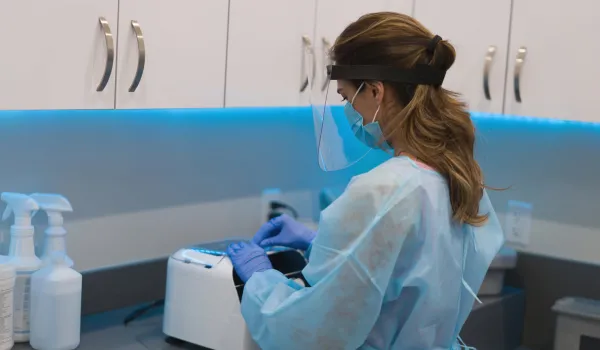Concorde Staff

For today's blog, we're going to look at where a Physical Therapist Assistant (PTA), such as the ones who obtain their training from the Physical Therapist Assistant program at Concorde, can work once they obtain their degree and certification. We're going straight to the best source out there for that information - the American Physical Therapist Association (APTA).
Physical Therapist Assistant work settings
The vast majority of PTAs, approximately 72 percent, work in hospitals or privately-owned physical therapy practices, according to the APTA. Others work in home health, schools and rehabilitation units. About 28 percent of PTAs work part-time.
Acute care
Physical therapy in this setting is provided to individuals who are admitted to a hospital for short-term patient care for reasons such as illness, surgery, accident or recovery from trauma. The goal in this setting is to discharge the person as soon as he or she is medically stable and has a safe place to go.
Rehab/sub-acute rehab
- Rehabilitation hospital - Physical therapy is provided to individuals who are admitted to a facility or rehabilitation unit. The goal is to provide intense therapy to improve the patient's ability to care for himself or herself.
- Sub-acute rehabilitation - PT is provided to individuals who are admitted to a special hospital that provides medical and/or rehabilitation care.
- Extended care facility/nursing home/skilled nursing facility - PT is provided to individuals who are admitted to a facility that typically cares for elderly patients and provides long-term nursing care, rehab, and other services.
- Outpatient clinic (private practice) - Individuals visit a physical therapist or physical therapist assistant in a clinic, office or other health care facility primarily to address musculoskeletal and neuromuscular injuries or impairments.
- School/pre-school - PT is provided within an educational environment, including pre-school, elementary or secondary education facilities.
- Wellness/prevention/sports/fitness - PT is provided to individuals with a focus on wellness and prevention of injuries.
- Home health - PT is provided in the patient's place of residence. The majority of these clients are senior citizens but include all demographics, including pediatrics.
- Hospice - PT is provided to patients in the last phases of incurable diseases so that they might maintain functional abilities for as long as possible and manage pain.
- Industrial, workplace, or other occupational environments - PT is provided to individuals primarily to help them return to work or for the purpose of enhancing employee health and increase productivity in the workplace.
- Local, state and federal government - PT is provided to civilians and military personnel. Physical Therapist Assistants are employed by federal agencies, including the Veteran's Health Administration, Department of Defense and Indian Health Service.
- Research center - PTs and other professionals conduct research to improve patient/client care outcomes and support the body of knowledge in the field.
Interested In How To Become a Physical Therapist Assistant?
Click here to explore Physical Therapist Assistant Programs near you!
Take The Next Step Towards a Brighter Future
We have a Concorde representative ready to talk about what matters most to you. Get answers about start dates, curriculum, financial aid, scholarships and more!



